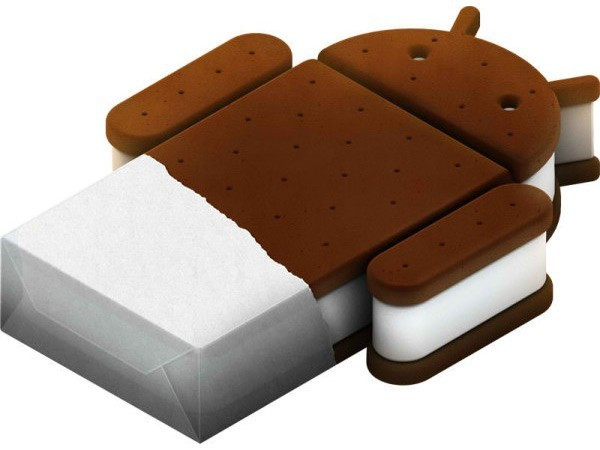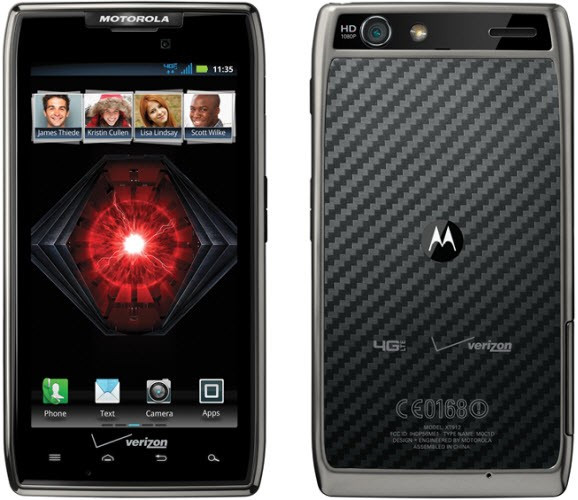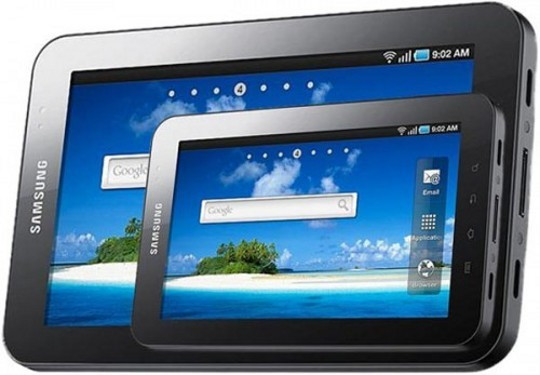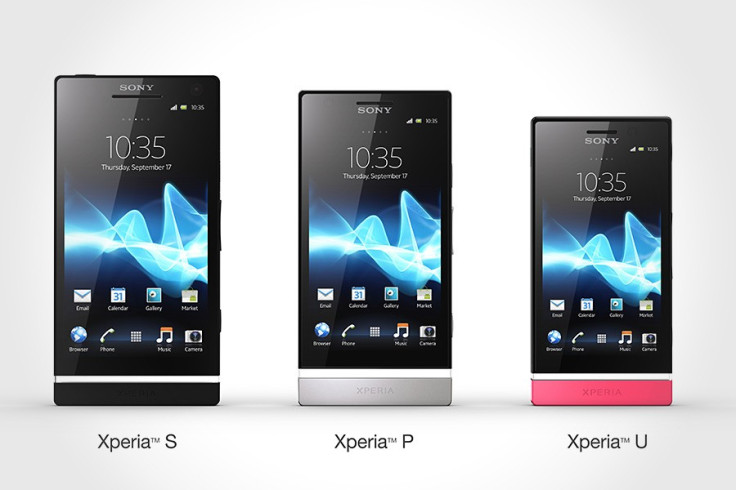Android 4.0 (Ice Cream Sandwich): Which Phones and Tablets will get it?
Google's Android operating system has come a long way since the first phone, the T-Mobile G1, launched in 2008. It is now the number one mobile operating system in the world with 850,000 new Android devices activated everyday and over 300 million Android smartphones and tablets in use around the world at the moment.

However, only 12 million of these are tablets and one of the reasons Google has been unable to replicate its success on smartphones on larger form factors is the issue of fragmentation of the software.
Since it launched with Android 1.0 back in 2008, Google has updated the software nine times with each of these updates being skinned and tweaked by manufacturers and networks. This means there are numerous versions of Android currently in use around the world, leading to developers facing problems for their apps, which they need to tweak to run on different versions and different form factors.
The latest official version of the software, called Android 4.0 and code-named Ice Cream Sandwich (ICS) was officially launched on the Samsung Galaxy Nexus on 19 October, 2011. ICS was seen as the unification of the fragmented OS replacing both Android 2.3 (Gingerbread) and Android 3.0 (Honeycomb) which were running on smartphones and tablets respectively.
However since launching almost six months ago, very few smartphones or tablets have been launched with ICS, or have received an update. According to Google itself, only 1.6 percent of the 300 million or so Android devices out there are running ICS.
So we decided to get in touch with all the major Android smartphone manufacturers and the networks who will push the final update to customers, to find out just which phones and tablets will be getting the update, and more importantly when they will be getting the update:
Motorola

Considering that Google now owns Motorola, you would expect them to be first in line with the latest Android updates - but this doesn't seem to be the case.
Motorola is pretty good at setting out the process behind getting ICS from Google and the various stages it goes through before getting to your device.
First up from Motorola is the original Motorola Xoom, which has been updated in the US, but the rest of the world will have to wait until Q2 for the update. The Xoom 2 and Xoom 2 Media Edition tablets will have to wait even longer, with the update for this tablet slated for Q3, 2012.
Moving onto Mororola's smartphones and it flagship device, the Motorla Razr is set to get the ICS upgrade, which is currently in development, in Q2, 2012. And unfortunately that's it in terms of confirmed phones which will definitely get Android 4.0. A number of phones are being evaluated for an upgrade, such as the Motoluxe, Motorola Pro and the Motorola Atrix but all others will remain on Android 2.3 or below in Europe.
The situation is a little better in the US, where the Atrix 2 and Photon 4G have been confirmed as getting Ice Cream Sandwich.
LG

Things are a little more straight forward for LG. It has confirmed to us that all LG phones currently running Android 2.3 (Gingerbread) will get the Ice Cream Sandwich update beginning in the second quarter of 2012. This includes flagship phones such as LG Optimus 2X and LG Optimus 3D.
LG has also confirmed that two of its new L-Style smartphones, namely the LG L5 and LG L7 will run Android 4.0 from launch as will the company's flagship phone, the LG Optimus 4X HD. The final L-Style phone, the LG L3 will launch with Android 2.3, but could get an upgrade in time.
The 5in LG Optimus Vu will also ship with Android 2.3 but LG has confirmed it will be bringing out an upgrade within three months of launch.
Samsung

Possibly the most important Android manufacturer, Samsung was the company which paired with Google to launch the reference Ice Cream Sandwich device, the Samsung Galaxy Nexus. However the company has since struggled to meet customers' expectations and is still struggling to get ICS out to its flagship phone, the Samsung Galaxy S2.
While updates to the S2 are now rolling out (and due in the UK from 19 March), what about its other phones and tablets. Let's look at tablets first. Samsung has got tablets in pretty much every conceivable size from 5in to 10.1in and most are getting the upgrade to ICS.
Samsung has confirmed that the Galaxy Tab 7.0 Plus, Galaxy Tab 7.7, Galaxy Tab 8.9 and Galaxy Tab 10.1 will all be getting the Android 4.0 treatment. Turning to new tablets, and Samsung has confirmed it will be launching the 7in and 10.1in versions of the Galaxy Tab 2 and the new Galaxy Note 10.1 with ICS.
Turning to Samsung's smartphones, the company has confirmed that the popular Galaxy Note will be getting ICS, as well as the Galaxy S2 and its variants such as the Galaxy R, and the Samsung Galaxy S2 LTE.
However, other than that it seems as if Samsung will not be bringing ICS to its huge line-up of Android phones. This will be a disappointment to many including owners of the popular Galaxy Ace line-up and Galaxy W smartphone.
HTC

The Taiwanese company has announced which of its phones will be getting the update to Ice Cream Sandwich with the list including the HTC Sensation, HTC Sensation XE, HTC Sensation XL, HTC EVO 3D, HTC Incredible S, HTC Desire S, HTC Rhyme and the HTC Desire HD.
While the update to the Sensation is currently rolling out, the company has not provided much in the way of concrete dates for the launch of the rest of the updates. While there have been reports that the HTC Flyer tablet will get the upgrade, even though it only recently got the upgrade to Honeycomb, HTC has not commented officially on the possibility.
HTC's new One range of smartphones, the HTC One X, the HTC One S and the HTC One V will all come with Android 4.0 (Ice Cream Sandwich) when they launch in the next month or so and all will feature the latest version of HTC Sense, the company's proprietary software skin.
Sony

As far back as December, Sony (then Sony Ericsson) announced which of its Xperia phones will be getting the ICS treatment. The first phones which are due to get the update are the Xperia arc S, Xperia neo V and Xperia ray. These are due to get the update at the end of this month or beginning of April.
Other phones slated to get the update include the Xperia arc, Xperia PLAY, Xperia neo, Xperia mini and mini pro, Xperia pro, Xperia active. The three latest phones from Sony, announced at Mobile World Congress 2012, the Xperia S, the Xperia U and the Xperia P will all ship with Android 2.3 (Gingerbread) but will all definitely get updated to Ice Cream Sandwich according to Sony.
Looking at Sony's tablet offering, the company announced in January that it would be bringing ICS to the Tablet S and the Tablet P but has so far failed to give a timeframe for the update.
ZTE

The Chinese smartphone manufacturer announced a slew of new phones at Mobile World Congress last month and it has confirmed to us which ones will get ICS from launch. These include the ZTE Era, ZTE PF112, ZTE Mimosa X, ZTE N91 and ZTE PF200 while the company has also confirmed to us that the ZTE Aqua will get updated from Android 2.3 to 4.0 in June.
Mobile Phone Networks
Of course it is not just the manufacturers who delay the roll out of the latest versions of Android but also mobile phone networks, who need to test the new software before pushing the update out to smartphone owners.
We spoke to Three, Vodafone and T-Mobile regarding their polices about the Ice Cream Sandwich update and they all told us pretty much the same thing: that they try to bring the updates out as quickly as possible.
Vodafone told us: "Every update is tested first to ensure the best possible experience for customers on our network and the same is being done in this case [Android 4.0] as well. As every phone and upgrade is different, the length of the testing period varies between several days and weeks but we're always striving to bring the best experience to our customer as soon as possible."
Three said it would be bringing out the ICS update "in line with the rest of the market" and T-Mobile said for its updates, it works to "make it as close to manufacturing release date as possible."
So, as you can see, with the proliferation of smartphone manufacturers making Android-powered devices, the various UI tweaks made by these manufacturers and the testing carried out by networks, updating phones and tablets to the latest version of Android is unlikely to ever be a smooth operation.
© Copyright IBTimes 2025. All rights reserved.






















